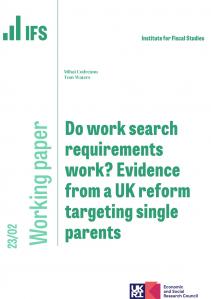I’m trying to look on the bright side. Since so much new policy is bad policy I suppose one of the possible benefits of a hopelessly hung parliament is that we will get less policy. If we get more virtually content-free budgets such as that presented by Philip Hammond in March we can at least be confident of not doing too much more damage.
But, no, I can’t hang on to that attempt at optimism for long. It’s not as if all is well. There is too much that does need doing, too many difficult choices that do need making, most obviously on Brexit. In fact there is a disturbing number of issues on which sensible choices are increasingly urgently needed.
The one significant bit of content in that largely content-free budget was a small step towards the alignment of the taxation of employees and the self-employed. It was the right policy. Other changes are needed for sure. But without this policy, tax revenues will continue to fall. Firms which employ people will continue to be undercut by those who offer only self-employment contracts. Employees will be asked to pay too much tax and too few people will get the chance to become employees at all. Yet the government couldn’t get the change through a parliament where it had a majority.
Then there is social care. After years of indecision, inaction and prevarication, and a crisis growing before our eyes, I was beginning to get just a little bit optimistic. The chancellor had found more money to keep the system going. A green paper was promised. Serious work was being carried out by serious people in the Cabinet Office, with buy-in from senior ministers. Some kind of agreed way forward looked possible.
And then came the Conservative manifesto. Now I don’t think there was anything inherently daft or outrageous about the proposals in the manifesto. I don’t think I agree with them, but I know plenty of sensible people who do. The proposal was simply to align the means-test for those needing residential care with that for those needing care in their own home. The former means-test was to be made more generous, the latter less generous. You would basically have to pay for your care until you had £100,000 of assets left, at which point the state would step in and pick up the tab.
Given where we start, that is not a terrible policy, though I prefer the — admittedly more expensive — policy proposed by the Dilnot commission. Under their proposals, rather than spending all your assets until you only had a certain amount left, you would only ever have to spend a certain amount, and then the state would pay for the rest however expensive it turned out. I prefer that because it feels like a natural role for the state — to insure you against catastrophic costs against which you cannot insure yourself. But equally asking those with valuable assets in the form of their house to pay for themselves is quite coherent.
One way or the other a choice needs to be made around which we can build a consensus. Given the parlous state of social care funding, and the huge costs and uncertainties faced by some of those who end up in residential care, we need to do that rather urgently.
Just as political paralysis seems likely to leave workers, and the taxman, worse off because we can’t change the tax system, so it looks like leaving the most frail and sick very poorly served. Those are just two of many examples where (good) policy decisions are needed for the good of the British people.
I pick those two policies because there is something very similar both about how they were announced — one in a budget, one in a manifesto. In neither case was the ground prepared. In neither case was the argument properly made. In neither case was consensus sought. In neither case did the policy last more than a few days before being dropped, by the government in the face of backbench criticism in the one instance, by the Conservative Party facing the voters in the other. Stalemate. The default is to do nothing.
That’s how a hung parliament feels too. Stalemate. Nothing doing. But in my foolishness and naivety I ask in all sincerity whether it needs to be like that. I repeat, policy decisions are needed for the good of the British people in these and many other areas. The British people themselves are clearly deeply divided. There is a majority neither for a hard Brexit nor for remaining in the EU. There is a majority neither for the Conservative vision of continuing austerity nor for Labour’s proposed vast tax and spending increases. A divided house of commons reflects a divided country.
To use the language of the campaign, you can build a strong and stable economy without imposing all the spending cuts that the Conservatives were planning. A little more borrowing and a little more tax would not sink the economic ship. You can also build a fairer and more inclusive society, particularly for younger people, without all the spending, tax and borrowing increases proposed by Labour.
The call for compromise and consensus is, I know, the often despairing cry of technocrats down the ages, and I am just another boring technocrat. But if the politicians are truly to reflect the will of the people, and perhaps even more importantly if they are to serve the people as best they can, then they will need to find a different way of working.
Building a consensus and making compromises on everything from Brexit to social care to taxation might actually give us some decent policies which last more than a day or two.
This article was first published by The Times and is reproduced here in full with permission. Paul Johnson is director of the Institute for Fiscal Studies. Follow him on @PJTheEconomist








